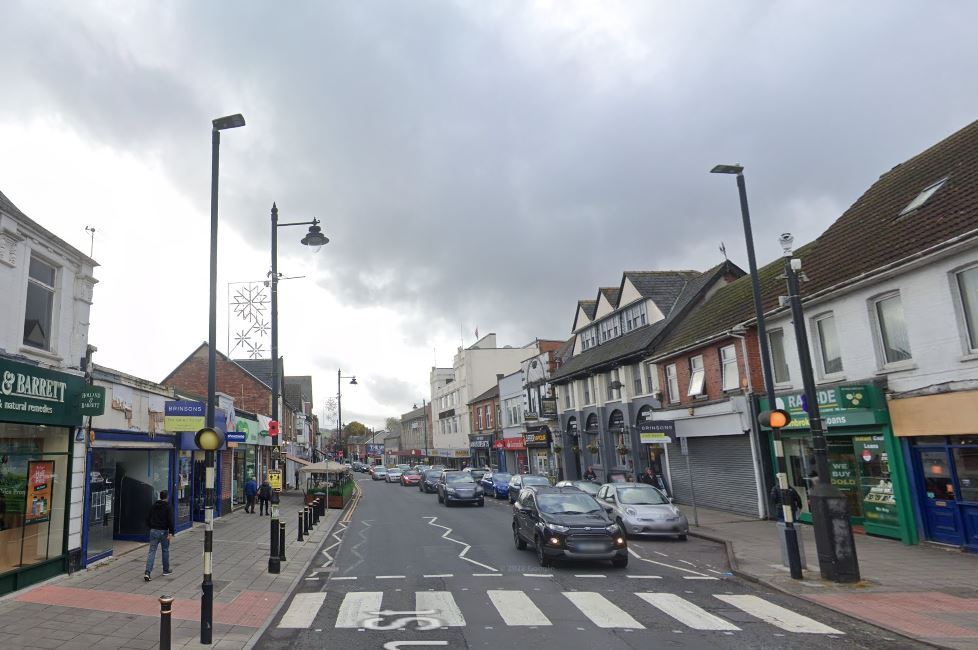CUTS to a Wales-wide business rate relief programme are a “sure-fire way to lose a high street”, a Caerphilly county councillor has warned.
Nigel Dix said traders in his hometown of Blackwood were “struggling to make ends meet”, and the high street had lost two banks and “major retailer” Wilko.
He said the Welsh Government’s proposal to cut rates relief from 75% to 40% next year was another “spanner thrown in the works” for businesses.

The Welsh Government defended its “generous” programme of business support and said “almost half of ratepayers, including thousands of small businesses across Wales, do not pay rates at all”.
Cllr Dix, an independent from Blackwood, said there were traders “just about managing” financially, adding that “we need to make sure we have a high street that’s going to be there in the future”.
Speaking to the Local Democracy Reporting Service (LDRS), he said he feared businesses were “going to fail” as a result of the lower rate relief offer included in the Welsh Government’s draft budget proposals for 2024/25.
“It’s going to make maintaining a business in the town even more difficult than it already is,” Cllr Dix said, warning that traders were “going to need to find 35% more income”.
“It’ll lead to more empty shops – that’s not going to be better for anybody,” he added. “We’ll end up with nothing. It’s a sure-fire way to lose a high street.”
When she announced the draft budget proposals on December 19, Welsh Government finance minister Rebecca Evans said the 75% programme of “temporary” relief was “never intended to continue indefinitely”.
“Our move to more frequent revaluations will ensure that non‑domestic rates bills better reflect up-to-date market conditions for all sectors of the tax-base,” she added.
Responding to Cllr Dix’s comments, a Welsh Government spokeswoman said: “We are providing a package of rates support worth £134 million next year on top of our permanent relief schemes, which are worth £250m a year.
“Thanks to our generous system of full reliefs, almost half of ratepayers, including thousands of small businesses across Wales, do not pay rates at all.”
The Welsh Government was “providing a fifth successive year of support for retail, leisure and hospitality businesses with their rates bills, at a cost of £78m,” she added. “This builds on the almost £1bn of support provided in rates relief schemes to these sectors since 2020/21.”
“We have taken the decision to cap the increase to the non-domestic rates multiplier for 2024-25 to 5%, at a recurring annual cost to the Welsh budget of £18m,” the Welsh Government spokesperson said. “This is the maximum level of support affordable using all of the consequential funding which came to Wales as a result of decisions relating to the multiplier announced in the UK Government’s Autumn Statement.”
Commenting on the proposed rate relief changes, Cllr Jamie Pritchard, Caerphilly Council’s deput leader and cabinet member for regeneration, said the situation could prove “challenging” for businesses, but urged councillors against talking about “the end of the High Street”.
He said CCBC had made “great strides over the last twelve months” to support the High Street, and the business community, generally.
“The Caerphilly Enterprise Fund has had a really positive impact when it comes to supporting businesses via a 50/50 contribution,” Cllr Pritchard added. “I know the fund is very important to retain and create jobs in Caerphilly. As of October 2023, the fund had safeguarded 426 jobs and contributed to create 149.
“That is why the fund was initially increased threefold, and then boosted at regular opportunities. We, in CCBC, have made a conscious decision to back the business community.
“In light of the proposed decision on business rate relief, I have already started discussions on what could be explored to mitigate the situation. We all accept things are very challenging for Welsh Government, and we must work positively to confront these difficulties.”



















